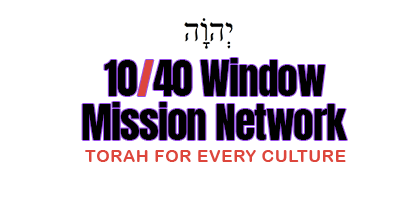- Home
- Events
- Library
- About 10/40
- International Torah Study
Afrikaans
العربية
Հայերեն
বাংলা
Bosanski
简体中文
繁體中文
Nederlands
English
Filipino
Français
Deutsch
Kreyol ayisyen
עִבְרִית
हिन्दी
Hmong
Bahasa Indonesia
Gaeilge
Italiano
日本語
ភាសាខ្មែរ
한국어
Кыргызча
ພາສາລາວ
Bahasa Melayu
ဗမာစာ
پښتو
فارسی
Polski
Português
Română
Русский
Српски језик
سنڌي
Afsoomaali
Español
Basa Sunda
Kiswahili
ไทย
Tiếng Việt
Yorùbá
Zulu
Top Insights
Recent Posts

In another article I discussed the different people groups of the New Testament, the Jews, Greeks, Nations and Proselytes. In the Old Testament we have four different people groups; the natives, strangers, immigrants and foreigners.
Attempting to differentiate between these different people groups can be very difficult if you are using a translation as it is not uncommon for a translation to use the same English word for different groups. For instance, the King James Version uses the word “stranger” for זור (Z.W.R, a stranger, see Leviticus 2:10), גר (ger, an immigrant, see Exodus 2:22) and נכרי (nakhriy, a foreigner, see Deuteronomy 17:15). This is why it is imperative that one use a Hebrew dictionary, such as Strong’s, when doing a study of Biblical words.
Native
The natives (sometimes translated as “home-born”) are those who are born to one of the twelve tribes of Israel. The Hebrew word for a native is אזרח (ezrahh, Strong’s #249). This word comes from the verbal root זרח (Z.R.Hh, Strong’s #2224), which means to “come up” or “come out of.” So an ezrahh is one has “come out of” Israel.
All that are home-born shall do these things after this manner, in offering an offering made by fire, of a sweet savor unto Jehovah. (Numbers 15:13, ASV)
Stranger
The Hebrew verb זור (Z.W.R, Strong’s #2114) means “to be separated out.” The participle form of this verb means a “stranger,” one who is separated out. This word is frequently used in the Torah for someone who is not from one’s own tribe.
to be a memorial unto the children of Israel, to the end that no stranger, that is not of the seed of Aaron, come near to burn incense before Jehovah; that he be not as Korah, and as his company: as Jehovah spake unto him by Moses. (Numbers 16:40, ASV)
“If brothers dwell together, and one of them dies and has no son, the wife of the dead shall not be married outside the family to a stranger; her husband’s brother shall go in to her, and take her as his wife, and perform the duty of a husband’s brother to her. (Deuteronomy 25:5, RSV)
Immigrant
The Hebrew word for an immigrant (often translated as “stranger” or “sojourner”) is גר (ger, Strong’s #1616) and is derived from the verb גור (G.W.R, Strong’s #1481), which means to “dwell with” or “dwell among.” So an immigrant is one who is not a native born Israeli, but lives with the natives. According to the Torah, the immigrants are to live according to the same customs and laws as the natives.
One law shall be to him that is home-born, and unto the stranger (גר) that sojourneth (גור) among you. (Exodus 12:49, ASV)
And they are to be treated the same way as a native because the Israelites were once immigrants.
And a sojourner shalt thou not wrong, neither shalt thou oppress him: for ye were sojourners in the land of Egypt. (Exodus 22:21, ASV)
However, there are still some differences between a native and an immigrant, as is apparent in the following verse.
Ye shall not eat of anything that dieth of itself: thou mayest give it unto the sojourner that is within thy gates, that he may eat it; or thou mayest sell it unto a foreigner… (Deuteronomy 14:21, ASV)
Foreigner
A foreigner is one who was born in a foreign land, but unlike an immigrant, is not bound to the customs and laws of the native or immigrant.
Unto a foreigner thou mayest lend upon interest; but unto thy brother thou shalt not lend upon interest. (Deuteronomy 23:20, ASV)
There are two Hebrew words for a foreigner; נכרי (nakhriy, Strong’s #5237) and נכר (nekhar, Strong’s #5236). Both of these words are derived from the root נכר (N.K.R, Strong’s #5234) meaning “to be recognizable,” probably because a foreigner is easily recognizable due to their very different culture and lifestyle.
Taken from: https://www.ancient-hebrew.org/studies-interpretation/natives-strangers-immigrants-and-foreigners.htm
Translate

Related Articles
Aaronic Benediction/ The Priestly Blessing
Nehemia Gordon speaks on the topic of the Priestly Blessing of Numbers...
By 10-40 AdminJanuary 31, 2023The Nomadic Hebrews – Part 3 of 3
The culture and lifestyle of the Hebrew nomads have a direct relationship...
By 10-40 AdminJanuary 29, 2023Was the Bible correct that pork is truly an unclean meat?
Pigs also do not have sweat glands. Perspiration is a key method...
By 10-40 AdminJanuary 18, 2023The Aaronic Blessing from a Hebrew Perspective
Once we have a basic understanding of the Hebrew alphabet, vocabulary, language...
By 10-40 AdminJanuary 11, 2023










Leave a comment